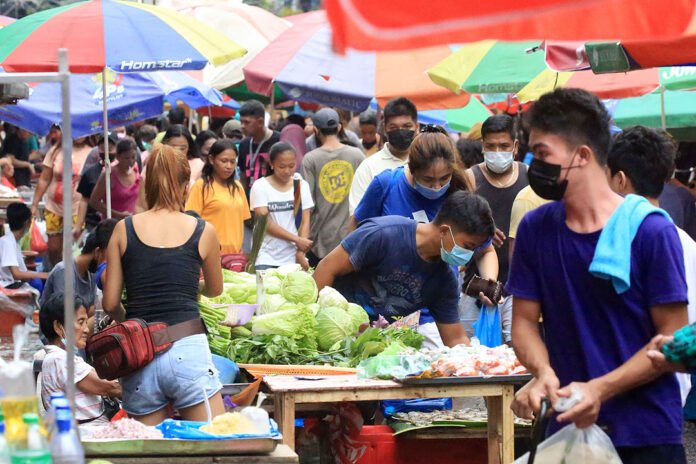According to the Philippine Statistics Authority (PSA), the nation’s economy grew by 5.7% during the first quarter of 2024.
This growth rate is greater than the 5.5% increase in the fourth quarter of 2023, but it is slower than the 6.4% growth in the same period last year.
Chief Statistician Dennis Mapa of PSA attributed the economic growth to multiple sectors: manufacturing experienced a 4.5% increase, wholesale and retail trade, which includes motor vehicle and motorcycle repairs, expanded by 6.4%, and finance and insurance activities had a 10.0% gain.
Nonetheless, the most recent gross domestic product (GDP) result was below the government’s 6%–7% target range.
Net primary income (NPI) from the rest of the world increased by 57.0%, while gross national income (GNI) increased by 9.7% annually.
The following are the quarterly growth figures for the main economic sectors:
- Agriculture, forestry, and fishing: -0.3%
- Industry: 2.6%
- Services: 1.0%
According to Mapa, household final consumption expenditure (HFCE) increased by 4.6%, the least since the third quarter of 2010.
“The slowdown in construction, likely due to prolonged periods of extreme heat, and elevated prices of major food items and the heat wave affecting household spending contributed to the slower HFCE growth,” stated National Economic and Development Authority Chief Arsenio Balisacan.
Balisacan added, “People don’t want to go out. It’s so hot, I think that also affected the construction.”
Additionally, elevated and high-interest rates also contributed to the HFCE slowdown.
On April 8, the Bangko Sentral ng Pilipinas’ (BSP) Monetary Board (MB) maintained its target reversed repurchase rate at 6.5%, continuing its policy rates since the off-cycle rate hike in October 2023 to manage supply-side inflation pressures.
BSP Governor Eli Remolona mentioned that the MB would remain “hawkish” but did not anticipate further tightening of policy rates.
Government spending also decreased due to reduced expenditure in April, according to Balisacan.
On Tuesday, the PSA reported that the country’s inflation increased to 3.8% due to rising food and transport costs.




